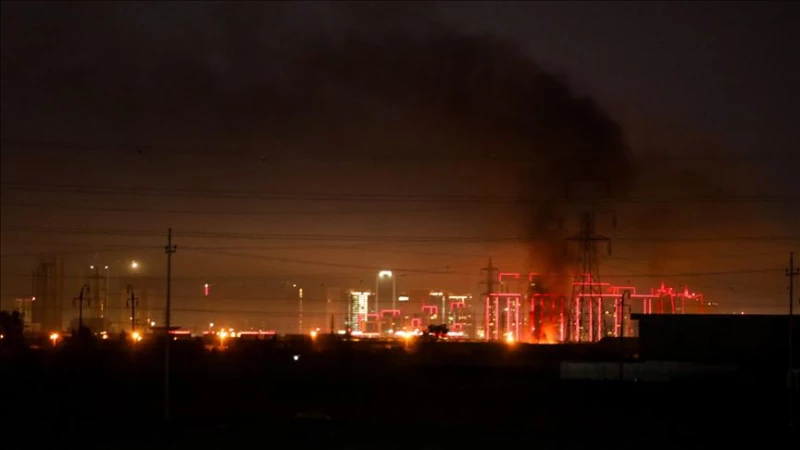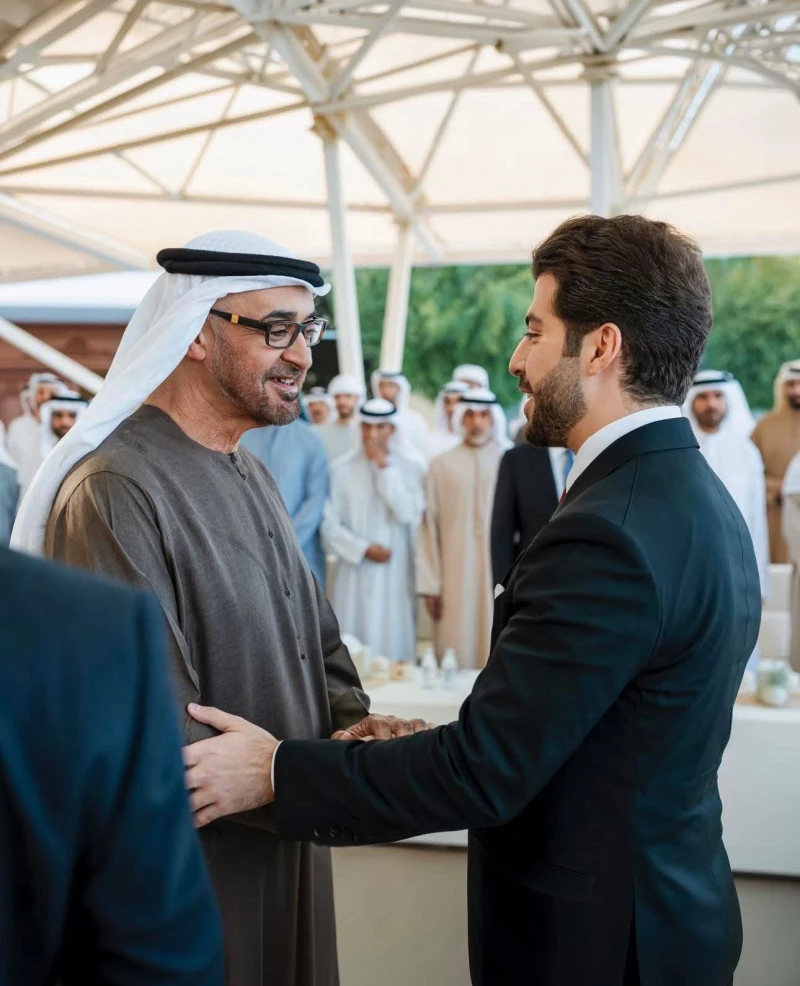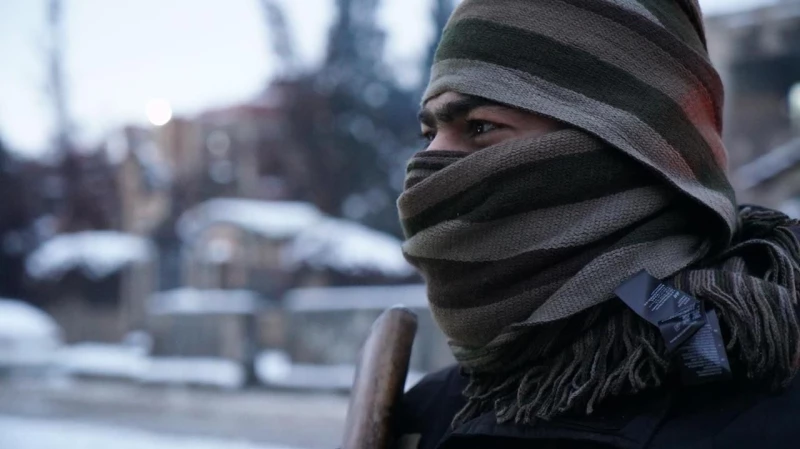Shirwan Saeed had been gearing up to capitalize on the bustling market activity during the Eid al-Fitr season by selling significant volumes of his fresh merchandise for lucrative returns. However, as the festivities commenced, tragedy struck. A massive blaze ravaged the primary marketplace in Duhok, the very location where Shirwan operated his sizable clothing outlet.
The calamity not only led to the incineration of Shirwan's stock and the total obliteration of his shop, inflicting considerable financial setbacks. It extended its destructive path beyond Shirwan's premises, engulfing over 140 other retail establishments.
In a mere three hours, the inferno transformed the bustling marketplace, brimming with merchandise and diverse goods, into a scene of desolation and ash. What was supposed to be a lucrative sales season for Shirwan tragically morphed into a significant ordeal from which he struggled to recover.
"I incurred losses of approximately $180,000, but the paramount concern for me was the safety of lives,” the 42-year-old Shirwan told The New Region.
Biyar Abdulaziz, the spokesperson for the Directorate of Civil Defense in Duhok told The New Region that “a dedicated committee has commenced an investigation into the fire incident and is assessing the extent of the damages."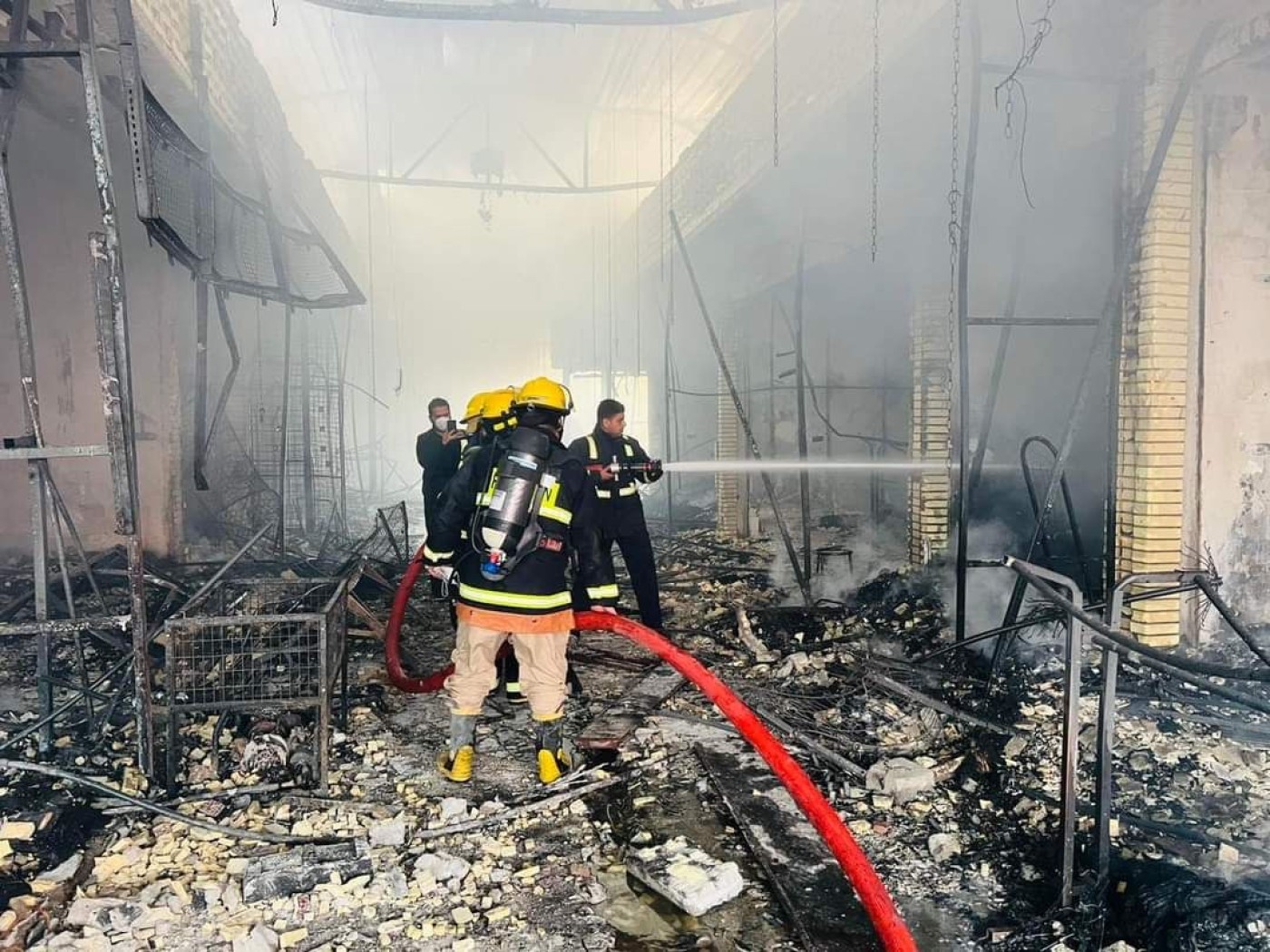
In the early hours of April 1, 2024, a massive blaze erupted in a bustling market in Duhok Province, inflicting substantial material losses and devastating the majority of the commercial establishments in the vicinity.
Subsequently, Erbil city experienced a comparable inferno a few days later, following closely on the heels of another significant fire in the Soran area. Authorities and experts stress the imperative need to enforce safety protocols in public spaces by instituting a comprehensive framework aimed at mitigating fire incidents.
In the Kurdistan Region's capital of Erbil, the Directorate of Civil Defense reported 1,711 fire incidents within the provincial boundaries last year. These included 298 residential fires, one incident at a fuel station, 19 building fires, 12 oven fires, 266 vehicle fires, nine blazes in government facilities, two fires at religious sites, 37 generator-related fires, 91 fires in commercial establishments, 143 farm fires, 14 factory fires, and various other incidents.
In a statement, the Directorate also highlighted that the monetary losses resulting from these incidents surpassed 1.5 billion Iraqi dinars. They emphasized that “40 percent of these incidents were attributed to electrical faults, with an additional 15 fatalities and 84 injuries reported as a result of the fires."
Other factors can also cause fires
Safety expert Shwan Kamal, speaking to The New Region, emphasized the importance of tackling the root causes of fires and evaluating their potential risks proactively to effectively manage and minimize resulting losses. He points out that many materials used in commercial establishments and public spaces lack high-quality fire resistance, often comprising easily ignitable plastic materials. Furthermore, there's a notable shortage of expertise among personnel in public spaces and commercial outlets regarding fire response and emergency procedures, compounded by the absence of comprehensive rescue and contingency plans in these areas.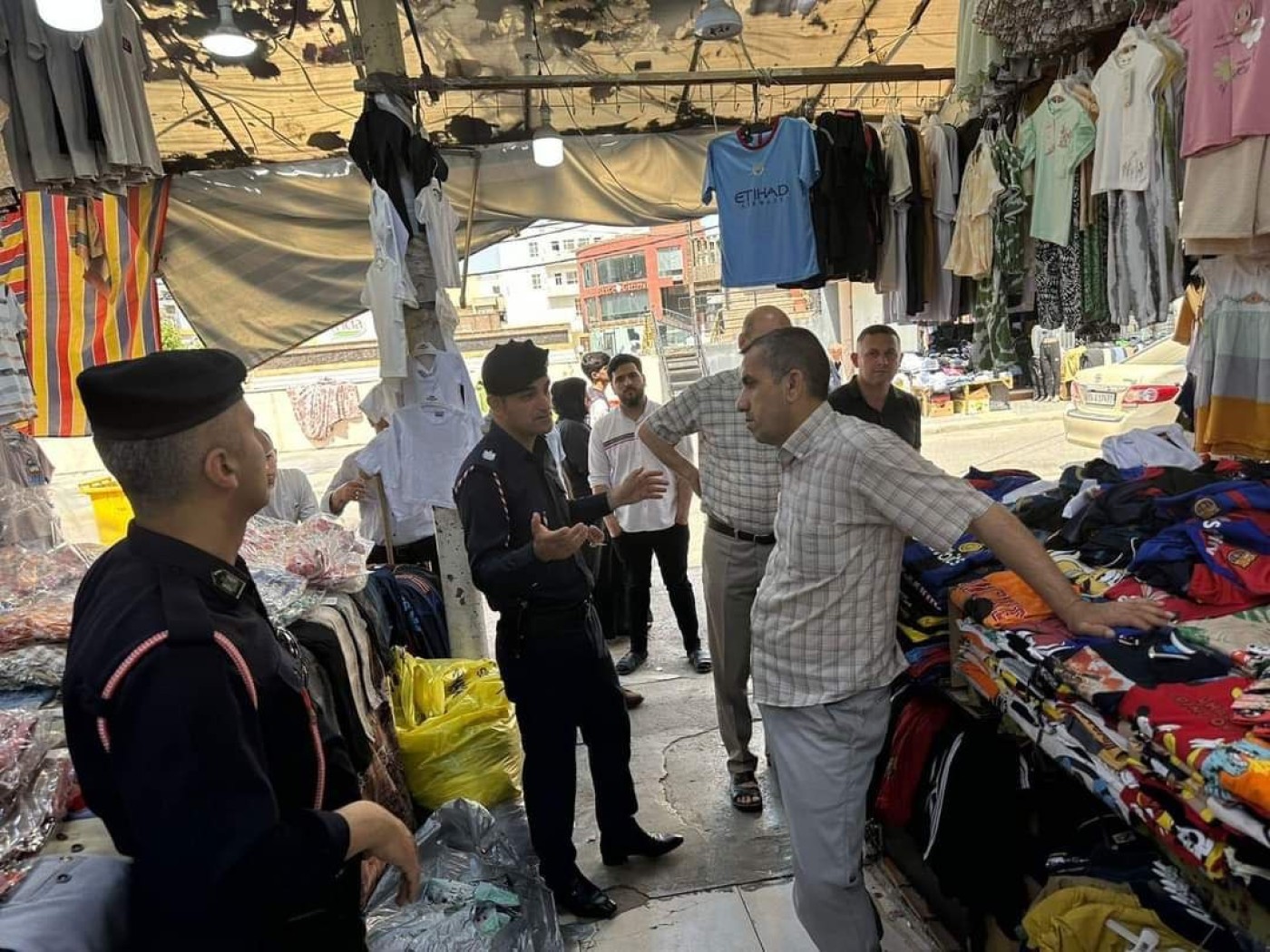
He underscored the vital importance of enforcing stringent measures and protocols among project owners, businesses, as well as governmental and non-governmental entities to effectively implement decisions and mechanisms aimed at minimizing human and material losses in the event of fires, disasters, and emergencies.
The Kurdistan Regional Government (KRG) has previously embarked on initiatives to bolster the emergency and civil defense sector within the region in preparation for potential fires, emergencies, or natural calamities.
These efforts entail the training and certification of personnel and security personnel employed in this sector, alongside the procurement of essential logistical resources.
According to a report released by the KRG, Hemin Mirany, the Director General of the Ministry of Interior’s Diwan, highlighted the government's concerted focus on enhancing the emergency sector. He noted that this emphasis involves training personnel through participation in various training programs aimed at honing their skills across diverse domains.
"Regarding equipment provision, two convoys of fire trucks were assembled. The first convoy comprises several small vehicles tailored for mountainous terrains, along with larger fire trucks. The second convoy includes both fire trucks and rescue vehicles,” Mirany further elaborated.
Mirany further disclosed that eight specialized rescue teams have completed their training regimen, while an additional six teams from the Directorates of Immigration and Displacement and the Joint Crisis Coordination Center (JCC) have undergone training facilitated by the German government.
Some members of the civil defense have also received training in Japan, while others have attained qualifications from Coventry University in the UK.
This concerted effort aims to gradually disseminate their acquired expertise among their peers, thereby bolstering their collective capabilities to effectively respond to any emergency situation.
Mirany underscored the pivotal role played by our teams in Turkey, highlighting their exemplary performance in rescue operations owing to their honed skills. He emphasized that these endeavors align with the overarching objectives of these programs, which aim to ensure our teams are poised to swiftly mobilize to safeguard citizens' lives and extricate them from any natural calamity or unforeseen emergency.
"In line with directives from the Prime Minister of the Kurdistan Regional Government, two institutions were established with primary emphasis: The Civil Defense Institution and the Joint Crisis Coordination Center (JCC),” Mirany said. “The Prime Minister of the Kurdistan Region has prioritized these institutions, ensuring the provision of essential supplies and equipment, which have been promptly delivered to the Civil Defense Directorates."
As per the Erbil Directorate of Civil Defense, the KRG’s Ministry of Interior has recently furnished them with 54 compact-sized Toyota vehicles designated for operations in mountainous regions and urban areas, particularly in tight-knit, historic neighborhoods.
Moreover, an additional 20 vehicles have been allocated, comprising 8 units tailored specifically for rescue missions—marking the inaugural deployment of such vehicles in the Kurdistan Region. These vehicles are poised for utilization in the event of any natural or hazardous disasters or crises.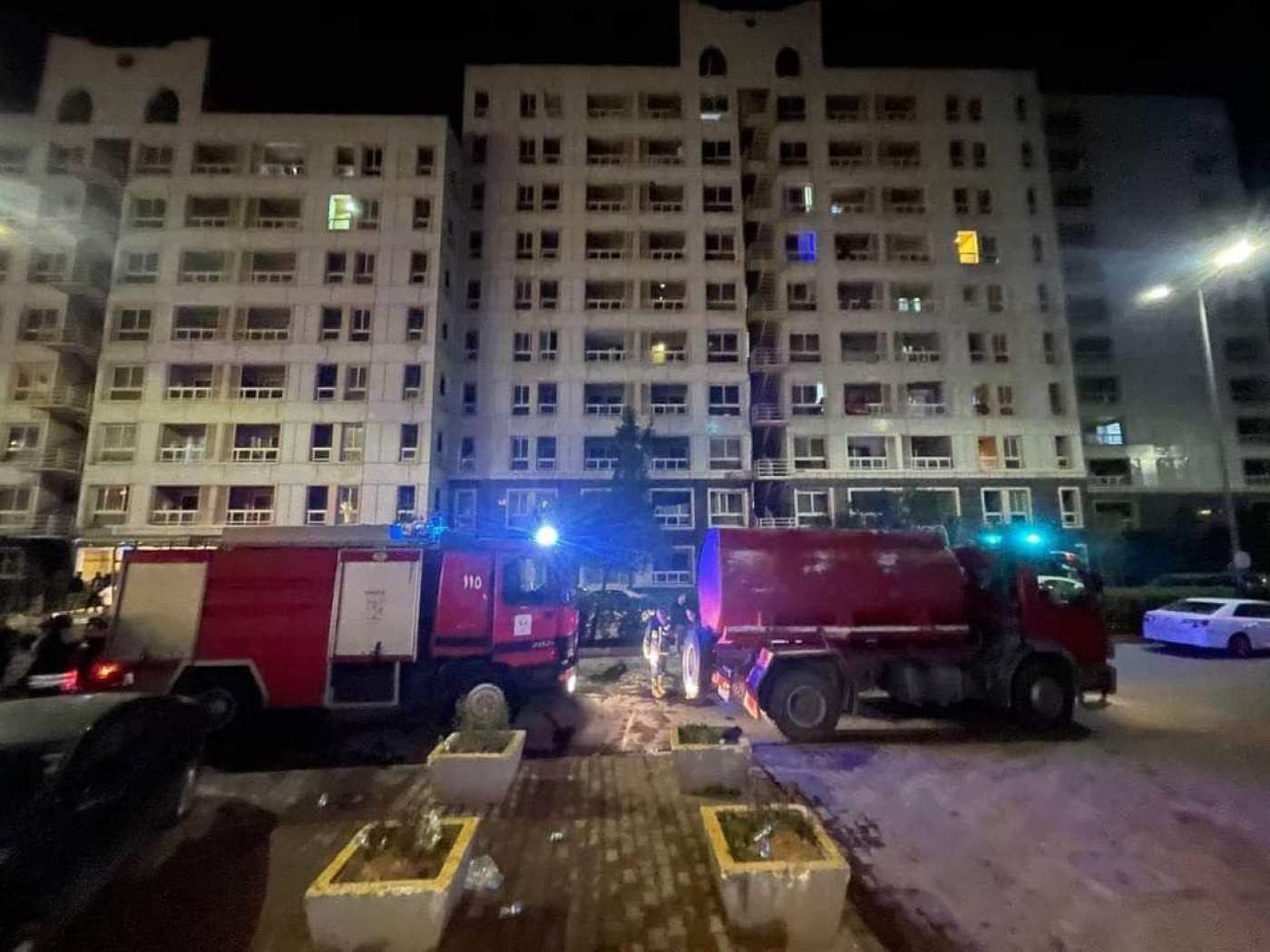
Improving building safety to minimize fire hazards
The Erbil Directorate of Civil Defense continues its ongoing efforts to uphold public safety. Saraj Tayfur, the official spokesperson for the Directorate, told The New Region that in accordance with civil defense legislation, they are committed to safeguarding and ensuring the safety of buildings from accidents through a two-stage process.
During the initial phase, prior to construction, the responsible party for the building is mandated to adhere to safety regulations stipulated by the law. Subsequently, upon completion of construction, a specialized committee conducts an assessment to verify the building's compliance with safety standards before occupancy. Any identified deficiencies are promptly documented and reported to the appropriate authorities for necessary enforcement actions against violators.
Tayfur emphasized that these regulations are applicable to all buildings, whether public or private.
Furthermore, the Civil Defense branch maintains continuous monitoring to identify violations and shortcomings that jeopardize public safety in official and private establishments, shops, markets, and other venues, with the objective of mitigating and managing fire incidents and emergencies.
Iraqi provinces witness tragic events
The performance of the civil defense sector in the Kurdistan Region stands as a commendable example when compared to other Iraqi provinces, which have experienced a series of distressing events in recent times. Among the most notable tragedies is the devastating fire that engulfed a celebration hall in the predominantly Christian town of Hamdaniya, located in Nineveh Province.
This incident resulted in the tragic loss of 122 lives and left 88 others injured. Another tragic occurrence took place at Ibn Al-Khatib Hospital in Baghdad, claiming the lives of 82 individuals and leaving 110 others wounded. Furthermore, a fire at Al-Hussein Hospital in Thi Qar Province resulted in the deaths of 92 individuals and left 110 others injured.
In a press statement, Brigadier General Hassan Ibrahim al-Khazraji, Assistant Director General of Civil Defense for Technical Affairs in the Federal Government, revealed that there are 7,000 projects across the country in violation of safety regulations.
These include event halls, hotels, restaurants, and private ventures. Out of these, fines have been imposed on 4,000 projects, while the owners of the remaining 3,000 projects are yet to comply with the regulations.
Additionally, Major General Kazem Bohan, Director General of Civil Defense, emphasized in a press statement that "the majority of fires are accidental and stem from genuine causes, with negligence, haphazardness, and non-compliance with safety and security protocols being notable factors. Many countries globally mandate hospitals and government entities to establish civil defense centers equipped with rescue gear.”
“However, 95 percent of state institutions are deficient in these facilities,” he added.
Essential public safety colleges for Kurdistan Region
International fire expert Hemin Wahbi told The New Region that the civil defense sector in the Kurdistan Region necessitates academically trained personnel specialized in firefighting, civil defense, and public safety.
He elaborated that establishing colleges and academic institutes would equip capable professionals to operate more efficiently in this crucial sector, covering firefighting, water rescue, disaster response, and other emergency scenarios.
Training specialized personnel would guarantee the caliber of civil defense services and play a role in upholding public safety in Kurdistan.

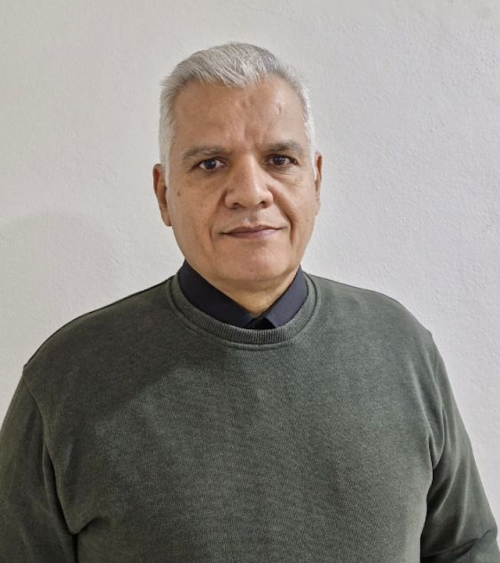
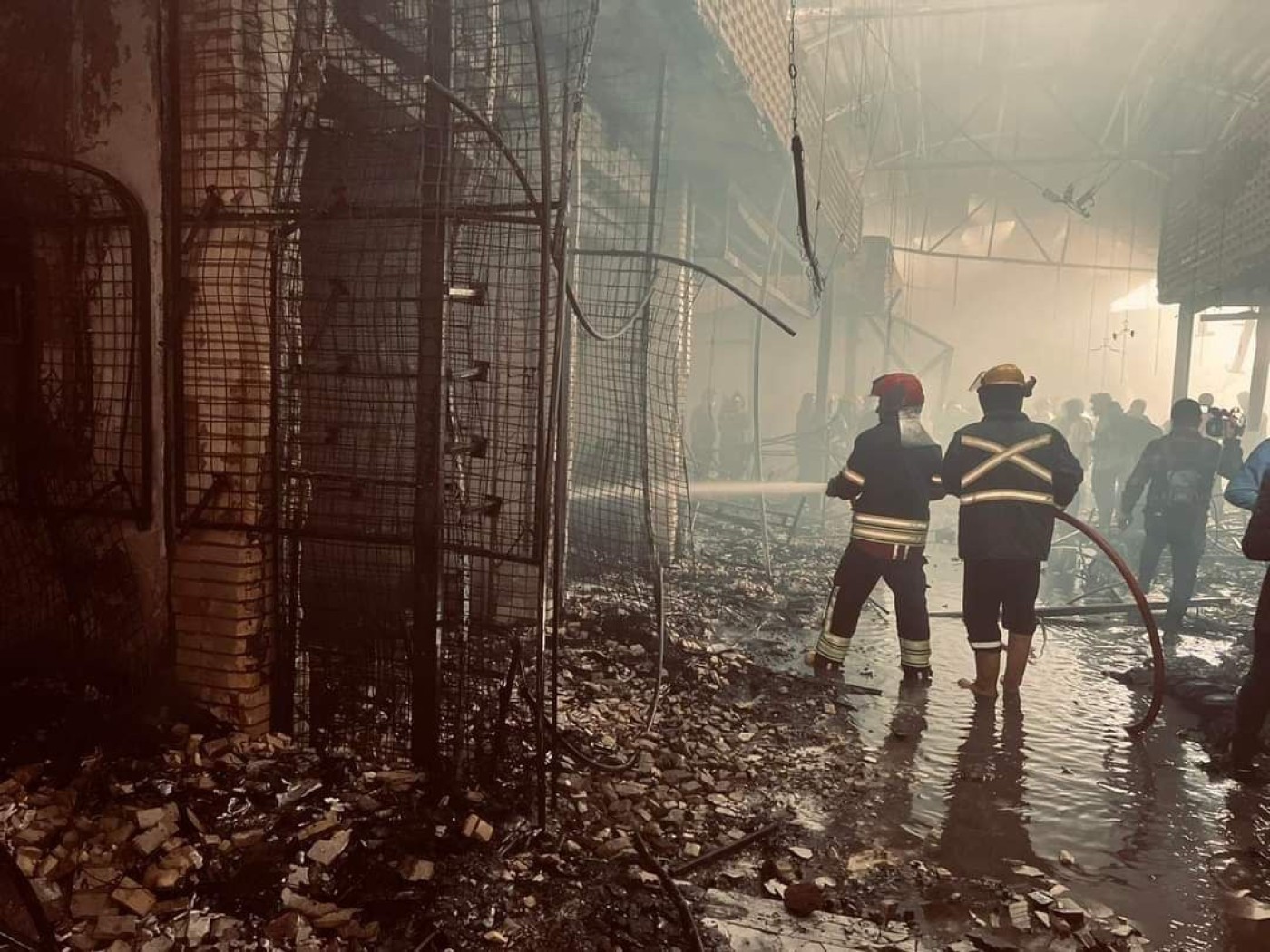
 Facebook
Facebook
 LinkedIn
LinkedIn
 Telegram
Telegram
 X
X
